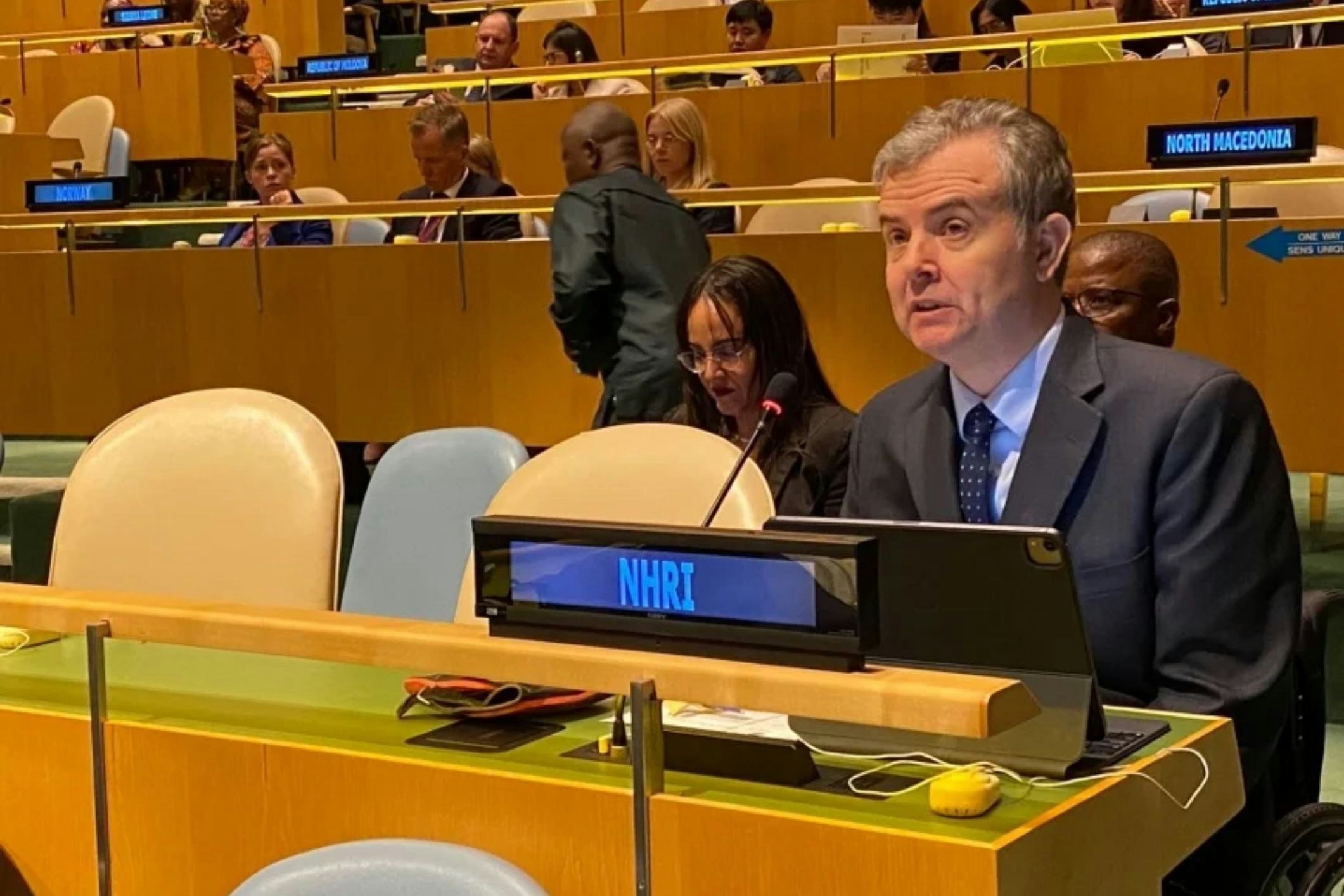Australia represents disability pride at New York UN Conference

Disabled Persons Organisations Australia (DPOA) delegates from People With Disability Australia (PWDA), National Ethnic Disability Alliance (NEDA), First Peoples Disability Network (FPDN), and Women With Disabilities Australia (WWDA) will debate and discuss issues and ideas along with other Australian and international conference attendees.
Key points:
- Australia attended the 16th Session of the United Nations (UN) Conference of States Parties to the Convention on the Rights of Persons with Disabilities (COSP16)
- The Conference runs from June 13 through to June 15 in New York, with UN Member States, disability organisations, human rights defenders, UN entities and development partners in attendance
- Due to the federated nature of Australia’s legislative system, attempts to act on or modify existing laws to comply with the Committee on the Rights of Persons with Disabilities (CRPD) have been difficult
This year, the Australian Government is providing funding for 14 civil society delegates from disability advocacy organisations across the country to attend the Conference. With them, Minister for Social Services Amanda Rishworth takes to the world stage in New York to announce Australia’s commitment to the protection of people with disability, along with the national strategy for progress.
COSP16 is a cultural touchstone for progress across the world, with Ms Rishworth’s arrival serving as an emblem of the Albanese Government’s intentions. In addition to the Minister for Social Services, Disability Discrimination Commissioner Dr Ben Gauntlett offered the CRPD his evaluation of Australia’s current provisions for upholding the rights of people with disability.
“In terms of the sub-themes of the Conference, concerning accessibility of sexual and reproductive health services for persons with disabilities, digital accessibility and reaching under-represented groups of persons with disabilities, Australia does not have a Human Rights Charter and requires discrimination law reform,” Mr Gauntlett shares.
“The impact is that many CRPD rights are not incorporated into domestic laws and gaps exist in the legal protections afforded to people with disability, and indeed all Australians.”
“Again, this needs to change. The Commission will continue to recommend the establishment of more robust mechanisms for the full and effective engagement of people with disability in policy development, implementation and monitoring in Australia,” he says.
Minister Rishworth says COSP16 represents a chance to share what the country knows, its goals and those of other nations.
“More than one in six Australians are living with disability and it is terrific that such a diverse cross section of Australia’s disability community is being represented at the Conference,” says Minister Rishworth.
“This year, 11 of the 14 civil society delegates funded to attend the Conference are aged between 18 and 35 and it is a privilege to attend alongside these emerging leaders.”
In attendance, Darryl Steff represents Down Syndrome Australia and Giancarlo de Vera is the delegate for People With Disability Australia (PWDA).
“We are looking forward to the opportunity to increase the profile of people with Down Syndrome and intellectual disability at the Conference and learn from other countries about their advocacy approaches,” says Mr Steff.
“As a member of the emerging youth leaders delegation, it’s critical that the next generation of Australian disability leaders have the opportunity to learn from those that have come before them,” comments Mr de Vera.